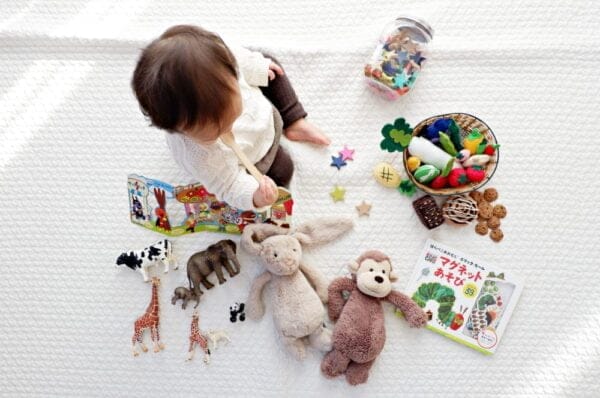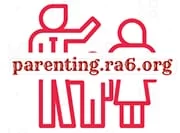Montessori Principles Explained: The Child-Centered Universe
At the heart of Montessori education lies a profound respect for the child as a unique individual. This educational approach, developed by Dr. Maria Montessori over a century ago, emphasizes self-directed learning, hands-on experience, and nurturing the natural development of children. But what exactly are the Montessori principles that guide this transformative way of teaching and learning?
In this article, we’ll demystify the Montessori principles of education, making them accessible to anyone interested in this child-centered educational approach.

Table of Contents
Introduction to Montessori Principles
![]()
The Montessori principles aren’t just a list of guidelines but rather a philosophy of education that honors the child’s innate ability to learn. These principles are derived from Dr. Montessori’s observations of children from diverse backgrounds and her understanding of their psychological development. The Montessori basic principles are designed to create an environment where children can thrive and learn at their own pace, guided by their interests and abilities.
The Five Pillars of Montessori Education
![]()
What are the five principles of the Montessori method that form the foundation of this educational approach? Let’s take a closer look at each of them:
- Respect for the Child
- The Absorbent Mind
- Sensitive Periods
- Prepared Environment
- Autoeducation (Self-Education)
Respect for the Child
![]()
At the core of Montessori education is a deep respect for children as individuals. This principle asserts that children should be treated with the same respect as adults and be given the freedom to make choices and learn through experience. In practice, this means educators observe children without interruption, allowing them to engage in activities that capture their interest. This principle acknowledges children’s natural curiosity and capacity for learning, and it encourages adults to trust in the child’s ability to initiate and lead their own educational journey.
The Absorbent Mind
![]()
Dr. Montessori observed that young children have an incredible capacity to absorb information from their environment, a phenomenon she termed “the absorbent mind.” During the early years, children effortlessly take in the world around them, learning language, social cues, and much more without explicit instruction. The Montessori method leverages this natural inclination by providing rich learning materials and experiences that cater to the child’s developmental stage, ensuring that learning is both meaningful and enjoyable.
Sensitive Periods
![]()
The concept of sensitive periods refers to specific times in a child’s life when they are particularly receptive to learning certain skills or concepts. During these periods, children show an intense interest and focus on specific activities, such as language acquisition, movement, or sensory exploration. Recognizing these sensitive periods, Montessori educators provide opportunities and materials that align with the child’s developmental needs, facilitating natural and effortless learning during these optimal times.
Prepared Environment
![]()
The prepared environment is a key Montessori principle that involves creating a learning space tailored to the child’s size, interests, and developmental stage. In a Montessori classroom, materials are carefully selected and organized to support independent exploration and learning. Everything within the environment is designed to be accessible to the child, fostering autonomy and self-reliance. The prepared environment also includes the presence of a trained Montessori educator who guides and facilitates learning without directing it, allowing the child to take ownership of their educational journey.
Autoeducation (Self-Education)
![]()
Autoeducation, or self-education, is the belief that children are naturally driven to learn and will do so on their own when provided with the right environment and opportunities. Montessori educators act as facilitators rather than traditional teachers, offering guidance and support while allowing children to take an active role in their learning. This principle empowers children to become self-motivated learners, capable of setting their own goals and working towards them with diligence and enthusiasm.
Montessori Principles in Action: Examples and Case Studies
![]()
How do these Montessori principles translate into real-world educational settings? Here are a few examples and case studies that illustrate the Montessori principles of education in action:
- A preschool classroom is designed with low shelves filled with hands-on learning materials that children can choose freely, reflecting the principles of the prepared environment and respect for the child.
- A teacher observes a child deeply engaged in a puzzle that teaches geography, recognizing this as a sensitive period for spatial understanding and offering additional materials to support this interest.
- A study published in the journal “Science” found that children in Montessori schools outperformed their traditional school peers in a range of social and academic skills, suggesting the effectiveness of the Montessori principles of self-directed learning and intrinsic motivation.
The Impact of Montessori Principles on Education
![]()
Statistics and research studies have consistently shown the positive effects of Montessori education on children’s development. Children educated under the Montessori principles tend to exhibit high levels of academic achievement, social understanding, and a strong sense of self-discipline. The respect for the child’s autonomy and the nurturing of intrinsic motivation help to cultivate lifelong learners who are adaptable, confident, and capable of critical thinking.
Frequently Asked Questions
![]()
What is the Montessori Method?
The Montessori Method is an educational approach developed by Dr. Maria Montessori. It emphasizes child-led learning, hands-on activities, and collaborative play. In a Montessori classroom, children choose activities based on their interests and learn at their own pace.
How do Montessori schools differ from traditional schools?
Montessori schools focus on individual learning and independence. They often have mixed-age classrooms, where children can learn from each other. Unlike traditional schools, Montessori classrooms don’t rely on grades or tests but assess progress through observation and portfolio reviews.
What ages is the Montessori Method suitable for?
The Montessori Method can be applied from birth through high school. It’s most commonly associated with preschool (ages 2.5 to 6) but is also effective for infants, toddlers, elementary, and secondary education.
What is the role of a teacher in a Montessori classroom?
In Montessori schools, teachers act more as guides or facilitators. They observe children to understand their needs and interests, then provide materials and activities to support their learning. Teachers do not dictate what children should learn but help them explore and discover on their own.
What are Montessori materials?
Montessori materials are specially designed educational tools that encourage hands-on learning. They are usually made from natural materials and are self-correcting, meaning they help children identify and correct their mistakes independently.
Can Montessori principles be applied at home?
Yes, Montessori principles can be used at home. Parents can set up a child-friendly space, provide Montessori-style toys and activities, and encourage independence by allowing children to participate in everyday tasks.
How does Montessori support social development?
Montessori classrooms create a community where children learn to cooperate, help each other, and resolve conflicts peacefully. Mixed-age groupings allow younger children to learn from older peers and for older children to reinforce their learning by teaching others.
What does “follow the child” mean in Montessori?
“Follow the child” means observing children to understand their interests and developmental needs, then supporting them accordingly. It’s about trusting children to lead their own learning journey and providing them with the opportunities to explore what fascinates them.
Are Montessori children successful later in life?
Many studies show that Montessori-educated children often grow up to be well-rounded individuals. They tend to perform well academically, socially, and emotionally, thanks to the strong foundation in self-discipline, independence, and love of learning.
How do Montessori schools handle discipline?
Montessori schools use positive discipline strategies. They encourage children to understand the consequences of their actions and to control their own behavior. Instead of punishment, they focus on teaching problem-solving skills and understanding emotions.
Conclusion: The Enduring Legacy of Montessori Principles
![]()
The Montessori principles of education offer a unique and enduring approach to learning that puts the child at the center of their educational experience. By respecting the child, understanding the absorbent mind, catering to sensitive periods, providing a prepared environment, and embracing autoeducation, the Montessori method fosters a love of learning that lasts a lifetime. Whether you are a parent, educator, or simply interested in child development, understanding and applying Montessori principles can have a profound impact on the lives of children, equipping them with the skills and mindset to navigate an ever-changing world.
The beauty of the Montessori principles lies in their universality and adaptability. Regardless of the cultural or socioeconomic context, these principles offer a roadmap for creating nurturing educational environments that respect and support the natural development of every child. The Montessori method’s focus on the holistic growth of the individual—not just academic achievement—ensures that children grow up to be not only knowledgeable but also compassionate, responsible, and engaged members of society.
In conclusion, the Montessori principles of education provide a powerful framework for cultivating the full potential of children. By embracing these principles, we can create learning environments that inspire, challenge, and support children, guiding them towards a future of curiosity, creativity, and lifelong learning.
Originally posted 2023-01-30 22:05:40.
